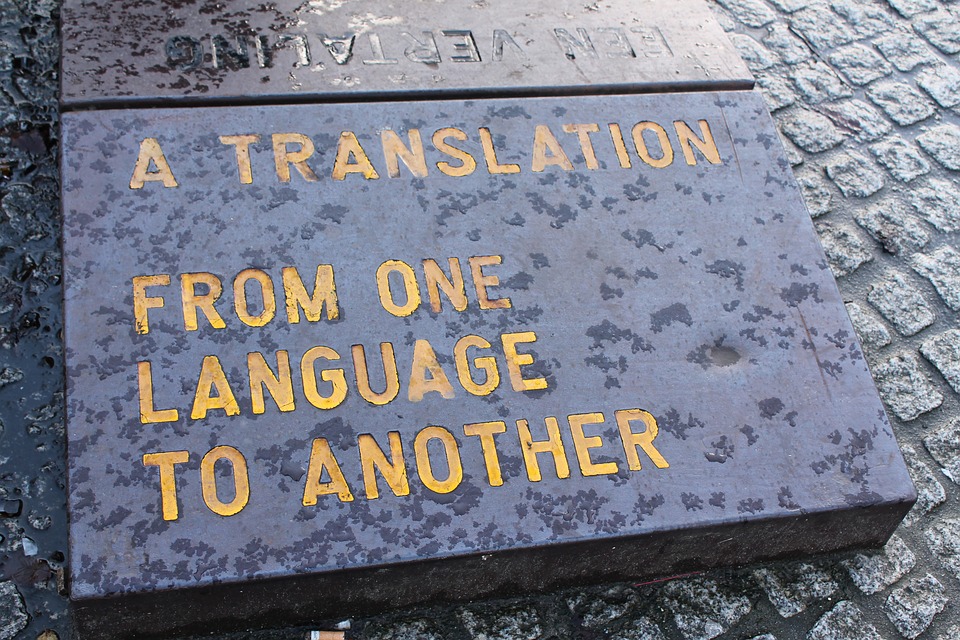 When we learn a new language we often try to translate the new words into our mother tongue as we read or listen. The better we become at a new language, the less we tend to perform this type of mental translation and the more we understand the words directly.
When we learn a new language we often try to translate the new words into our mother tongue as we read or listen. The better we become at a new language, the less we tend to perform this type of mental translation and the more we understand the words directly.
There are some obvious problems with mental translation. Firstly, it takes time to keep translating everything into a second language and secondly, languages cannot be directly translated word for word, only idea for idea. So, how long does it take to be able to understand a new language directly without having to mentally translate the words first?
Mental translation hinders progress in language learning
In order to be able to understand a language directly, without the need for mental translation, we need to ‘feel‘ the language.
This means we need to reach a stage where we can think in the language and it feels natural to us, a stage where the words have nuance in the same way the words in our native language do.
Direct understanding often comes quite quickly with basic phrases that we use all the time and that we learned early on in our language class, such as the phrase ‘how are you’? and ‘I am well, thank you’.
In order to understand more complex sentences this quickly, the ability to think in the target language is key.
Thinking in the target language makes the words become a part of your mental processes so that you don’t even notice which language your thoughts are formed in. People who are truly bilingual will take this ability for granted.
It can be useful to think of your native language and your target language as being just two small parts of one huge world language.
In this way, language is simply a tool that expresses thought. All languages serve this same purpose. The point is that there are lots of ways to express one thought and our native language gives us just one way.
Learning to think in your target language
The first problem with translating everything in your head before you understand it is that it slows down your processing time.
Mental translation means that every question has to be translated from the target language into your native language before you can understand it.
After this you need to think of your response in your native language and mentally translate that back.
This constant mental translation just takes too much time and interferes not only with your ability to have a conversation in your target language, but also with your enjoyment of the new language.
Part of the fun of getting to grips with a new language is ‘feeling’ the new words, so that the new language opens up a new way of thinking.
Looking at a table or a book, for example, and thinking of the word in your target language shows that you can think in your target language. Try to resist the need to translate in your head and let the new language ‘flow’ into your thoughts in this way.
Letting the target language ‘flow’
When reading a story in the target language, it doesn’t matter if you can’t understand every word, just skim over the ones you don’t know and you will often pick up the meaning from the context.
Authors often repeat the same words and phrases, so you will probably come across the new or strange word a few times and you will eventually understand it.
You could use a dictionary occasionally when reading a foreign text, but try to resist using a dictionary all the time for every new word.
Your mind will get used to the new language and you will slowly come to recognise the words without having to translate them in your head first. It might also help to avoid your own native language while you practise, so you can get used to hearing only your target language.
Fluency comes from being able to think in your target language comfortably like it is your own.
So try to resist the urge to mentally translate everything and you’ll progress much more quickly in your language learning.
What do you think about mental translation?
Can you think in your target language – or do you have to mentally translate?
Does translating in your head slow down your understanding?
Do you have any tips for faster understanding without mental translation?
Share your ideas in the comments.



I’ve been studying Portuguese for 8 years now and I’ve visited Brazil 18 times but I still can’t read or converse yet and I have to translate everything into English to understand. I don’t think in English and don’t understand what “thinking” in a language means. I’ve been practicing every day with my girlfriend for over 5 years now and she only speaks Portuguese but I still can’t understand what she is saying except for an occasional word that needs to be translated. It’s been very frustrating because I thought I would be conversing by now. I spend a lot of time studying. How can I begin to understand without translating? Thanks